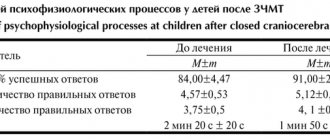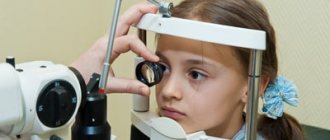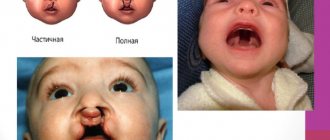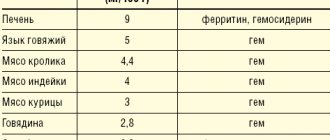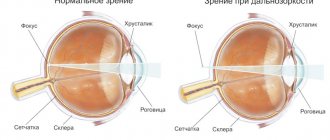What is ZPR?
Basic mental functions include memory, attention, thinking, motor and emotional skills. There are medical standards for child development for each of these indicators. If in preschool and primary school age there is a lag in any of these indicators, this may become a reason for making a diagnosis of “mental retardation.” Work with such children is carried out with the participation of doctors and teachers, and with early diagnosis it is possible to partially or completely restore missing skills and catch up with peers in development. It is worth understanding that this disorder can take on different forms, which must be differentiated from each other, as well as from other diseases.
The term “mental retardation” is a general name for a number of mental disorders, without taking into account the cause of their development, the nature of their course and the possibility of recovery. This diagnosis has been replaced by two categories: “psychological developmental disorders” and “emotional and behavioral disorders that usually begin in childhood and adolescence.” They are used in the International Classification of Diseases to designate any forms and manifestations of mental disorders in children. However, the first term also remains relevant.
Symptoms, signs, manifestations of mental retardation, mental retardation, mental retardation, mental retardation, speech delay, psycho-speech development
What are the symptoms, signs, manifestations of mental retardation, mental retardation, mental retardation, mental retardation, mental retardation, delayed speech development? The developmental delay clinic is clearly visible. If the child does not hold his head up in time, does not turn, does not roll over, the child does not sit , does not stand, does not walk, then this is a reason to immediately consult a doctor. Often in this case, a pediatric neurologist , neurologist , microneurologist , neonatologist prescribe medications, medicines, medications, tablets, injections, massage, electrophoresis, baths, infusions, tinctures, decoctions, mixtures, but the effect is, unfortunately, insignificant.
Possible reasons for the development of mental retardation
There are two types of children with mental retardation. The first of them are patients without disorders of brain development, and their problems are of a socio-pedagogical nature. In early childhood, they do not receive the opportunity for healthy mental development if they are in an unfavorable environment, in conditions of lack of attention and communication. Such children are often difficult to teach, poorly adapted to society and working in a team. However, with early diagnosis and correction of the family situation, they have a chance of recovery and further mental development on an equal basis with their peers.
The second type of mental retardation is patients with organic disorders of the brain. These can be congenital or acquired pathologies in which the functions of individual parts of the brain or the relationship between them are disrupted. Such patients can live in prosperous families and receive every opportunity for full development. Working with them will strengthen the missing neural connections and achieve good progress, but some features may persist into adulthood.
There is no single exact reason why mental retardation occurs. When identifying violations, it is worth considering how the mother’s pregnancy progressed. Among other things, ZPR can be a consequence of the following factors:
- infectious diseases of the mother, especially influenza, mumps, rubella;
- chronic diseases of the mother, disorders of the cardiovascular and endocrine systems;
- toxicosis, especially in late pregnancy;
- bad habits and various poisonings, including drugs, chemicals, salts of heavy metals;
- incompatibility of the Rh factor of mother and fetus.
Disorders can occur not only during pregnancy. Thus, birth trauma is one of the common causes of mental retardation in young children. Asphyxia (insufficient oxygen supply, suffocation) during childbirth reduces the degree of nutrition of the brain and can provoke mental retardation in a healthy child. Doctors at the Clinical Institute of the Brain recommend periodic examinations by a pediatrician in order to diagnose disorders in a timely manner. They may begin to develop not in infancy, but already in preschool age due to improper socialization of the child, pedagogical neglect and insufficient development of the emotional sphere.
Child doesn't speak? The child does not speak much - he needs treatment!
If your child does not speak , says few words, or speech development lags behind children of the same age, speech is slurred, if the child’s mental behavior differs from the behavior of other children, if there are learning problems, the child has poor memory (decreased memory), poor speech (poor or speaks little, does not speak), decreased intelligence, poor assimilation of educational material, hysterics (hysterical manifestations), the child does not remember well, restless, aggressive, whiny, hyperactive , then contact Sarklinik. Sarklinik will provide the necessary comprehensive treatment for children (boys and girls), infants, infants, toddlers, preschoolers, schoolchildren, and adolescents using effective hardware and non-hardware methods.
Clinical signs
It is important to understand that mental retardation is not a serious diagnosis. This type of disorder is at an intermediate level between the normal state of the child and pathology. Patients do not have significant problems with hearing, speech, motor activity and emotional state. The main difficulties are related to the child’s social adaptation and his learning abilities. In some cases, mental retardation may have its own characteristics of manifestation, but there is a characteristic set of clinical signs that should be the reason for a more detailed examination:
- Insufficiency of the emotional-volitional sphere is the first symptom. It is difficult for children to perform necessary tasks, including household tasks, if they do not bring positive emotions and do not arouse interest. This can cause problems with self-care.
- Poor attention is a typical manifestation of mental retardation. Children have difficulty concentrating even for a short period of time and are unable to perform several tasks at the same time. Often this symptom develops in combination with increased motor activity and emotional overexcitation. This complex is classified as a separate diagnosis “attention deficit hyperactivity disorder”.
- Impaired perception is another sign of mental retardation. The child can identify familiar objects, but it may be difficult for him to recognize them in an unknown environment. There may also be difficulties with orientation in space. Full work with the patient can partially improve the situation or even completely eliminate such disorders.
- Memory deficit has a characteristic feature - children perceive and remember verbal material worse. If they are given the opportunity to assimilate new information through visual images or text, the difference between the progress of children with mental retardation and those without this diagnosis will be absent or insignificant.
- Speech problems manifest themselves in different ways. A mild degree of mental retardation is characterized by a slight delay in speech while maintaining its quality. However, in severe forms there is a significant lag behind peers, a violation of the lexical and grammatical components.
- Thinking disorders apply to all forms of this process. Children have difficulty with logic, analysis, comparison and generalization of facts. This can be diagnosed when performing various logical tasks.
The Clinical Brain Institute offers individual diagnostic and adaptation programs for children with mental retardation. It is worth understanding that this diagnosis will not be an obstacle to visiting children's educational institutions, working in a team and other types of social activity. Full-fledged work can completely eliminate all differences between children without disabilities and patients with mental retardation, and their learning success will be almost the same.
Psychological characteristics
A child with mental retardation has features of mental development that differ from the symptoms of other similar pathologies. This is necessary to know to differentiate the diagnosis.
Differences from mental retardation:
- partial rather than complete impairment of cognitive activity;
- high potential for further development;
- It is not the mental functions themselves that suffer, but the prerequisites for intellectual activity (phonemic hearing, speech, attention);
- spasmodic dynamics of mental activity;
- ability to cooperate with adults;
- the presence of emotions in gaming activities;
- a vivid manifestation of emotion;
- often have a knack for drawing.
Differences from pedagogical neglect:
- lack of education and attention from adults is only one of the reasons, while in neglected children it is the only one;
- behavior is caused by deviations in the emotional-volitional sphere and cognitive abilities, and not by problems in moral and legal consciousness;
- are rarely distinguished by deviant behavior and rebellious character;
- know how to interact with adults.
The success of treatment and correction will depend on the correct diagnosis.
Types and classification
All variants of mental retardation are usually divided into 4 categories. They are caused by different reasons and are characterized by their own flow characteristics. This factor is important when making a diagnosis, since it allows timely and competent work to be carried out on the adaptation and socialization of the child in order to avoid problems in the future with working in a team, achieving goals and personal growth.
ZPR of constitutional origin
The first type of mental retardation is also called mental infantilism. It is manifested by a violation of the emotional-volitional component and a delay in its formation. This is not a disease, but a complex of behavioral characteristics that can subsequently affect the child’s development, his ability to learn and work in a team. Such children exhibit characteristic signs that may indicate mental retardation even at an early age:
- lack of independence, a feeling of helplessness in the absence of parents or other familiar adults;
- difficulties with adaptation to new conditions;
- frequent mood swings, unstable emotional background;
- too violent manifestations of emotions, both positive and negative.
Children with mental retardation of constitutional origin do not visually differ from their peers. They have no speech problems and appear active and positive. However, in terms of the level of emotional development they are less mature; with age, these developments can be smoothed out.
ZPR of somatogenic origin
This category includes children who are in poor health from an early age. They may be diagnosed with frequent colds, allergic manifestations, and disorders of the heart and blood vessels. They may have an individual regime of work, rest and physical activity, restrictions for playing sports and other features due to which they cannot fully be in children's groups, socialize and develop. Common problems that need to be dealt with in children with mental retardation of somatogenic origin include:
- lack of attention and lack of concentration;
- rapid fatigue from both physical and mental activity;
- low activity and desire to explore the world around us.
This category includes children who are under the constant care of their parents and older relatives. This may also occur due to their poor health, tendency to frequent colds and reduced immunity. Such children lack motivation to learn new things on their own, their concentration decreases, and excessive anxiety appears. In addition, they do not have the ability to make decisions, which causes a decrease in motivation. This situation is typical for prosperous families, where there are all conditions for the treatment and upbringing of a child. However, overprotection often interferes with normal personality development, so this factor also needs to be worked on.
ZPR of psychogenic origin
The next category of mental retardation is typical for dysfunctional families. Violence, unhealthy emotional background, conflicts, including between adults, cause disruption in the formation of a child’s personality. Such children experience excessive shyness, fear of expressing emotions, emotional instability and frequent mood swings. Conflicts in the family are indicated by fear of an unfamiliar environment, which may decrease over time or transform into other emotions, including aggression.
Hypocustody is one of the most common manifestations of pedagogical neglect. A child who grows up without the opportunity to observe normal relationships in the family, does not study in child care institutions, and cannot interact in a team. In the future, this leads to difficulties with communication, lack of motivation and other problems that get in the way of personal growth, professional development, and relationships with peers.
ZPR of cerebral-organic origin
Unlike previous types of mental retardation, this type is associated with organic damage to the central nervous system. Brain dysfunction is minimal, so the child still has every chance of full socialization and adaptation in society. The diagnosis may occur due to complicated childbirth, traumatic brain injury, or infectious diseases. The manifestations of this condition are individual, depending on the nature of the damage and the location of the pathological focus. Since at an early age the potential for regeneration is very high, nerve tissue is gradually restored and ensures the child’s development in all areas. However, this requires lengthy and labor-intensive work, including with specialized specialists.
Other classifications
There are other classifications of mental retardation syndrome. The first of them was developed in the USSR and was used for diagnostics in children's educational institutions. She identifies only two types of violations:
- uncomplicated infantilism of a psychophysical and mental nature;
- secondary mental retardation, which manifests itself as a result of cerebroasthenia (decreased brain function) of any origin.
There is also a classification developed by V.V. Kovalev. She distinguishes 4 main types of mental retardation, which develop under the influence of biological factors:
- dysorthogenetic - characteristic of infantilism in children;
- encephalopathic - a consequence of minimal damage to the nervous system;
- secondary mental retardation in diseases of the analyzer systems, including significant decreases in hearing and vision;
- ZPR, which occurs with early deprivation in society (for example, with the need for long-term hospitalization and lack of social adaptation).
The most accepted classification of mental retardation today is 4 types of disorders, depending on the etiological factor. It is she who identifies delayed mental development of constitutional, somatogenic, psychogenic and cerebral-organic origin. It is considered the most capacious and includes all cases of ZPR. However, in some cases it is difficult to accurately determine the category to which the disease belongs, so mixed varieties can also be distinguished.
Pathogenesis of ZRR, ZPRR, ZNPRR, ZPR, ZPRR, why and how developmental delay occurs
Often the pathogenesis of RRR, VMR, delays in speech, psycho-speech, psycho-speech development is associated with oxygen starvation of brain cells during intrauterine development. As a result of intrauterine hypoxia, neurons of the brain are affected, and the function of those parts of the central nervous system (central nervous system) for which they were functionally responsible is lost. When carrying out vaccinations (vaccinations), autoimmune reactions can be triggered, which are accompanied by death and destruction of nerve cells. By the way, the launch of autoimmune reactions can be accompanied by the development of severe pathology, even the development of cerebral palsy (cerebral palsy). Therefore, in case of any neurological changes in a child or perinatal encephalopathy, it may be necessary to temporarily refrain from vaccinations until the child’s neurological status is completely normalized. The neurological status of the child includes complaints, anamnesis, general appearance, postures, movements, behavior, study of cranial nerves, sensitivity, motor function, reflexes, meningeal syndromes, additional examination data, speech vocabulary.
Diagnosis and treatment of mental retardation in children
Diagnosis of mental retardation is carried out with the participation of a child psychologist, neurologist, speech therapist and other specialists. It is important to conduct a brain examination to promptly identify possible disorders. Doctors at the Clinical Institute of the Brain recommend that parents provide all the necessary medical history data that may be important in making a diagnosis. Open and closed traumatic brain injuries, conflict situations in the family and team, stress and other factors that could affect the normal development of the child have enormous diagnostic value. In addition, you will need an encephalogram and other studies that will allow you to assess the degree of development and level of functioning of the child’s nervous system.
Treatment of mental retardation includes work with specialized specialists, including a speech therapist and a psychologist. It is important to follow their recommendations and continue exercising at home. Also important is the child’s social adaptation in children’s groups, which can only be ensured by attending general education and preschool institutions. If the diagnosis persists in the lower grades, it is recommended to attend a specialized school. The program in such institutions remains general, but the small number of children in classes and the presence of additional correctional classes make it possible to carry out full-fledged work with children.
The Clinical Institute of the Brain has all the necessary conditions for diagnosing and correcting mental retardation. However, doctors emphasize that full-fledged work with the patient also includes homework and ensuring a normal emotional climate in the family. When preparing to give birth and raise children, you have the opportunity to visit a psychologist and receive succinct recommendations on how to avoid problems and create the most comfortable conditions for the child’s development, not only physically, but also emotionally.
Diagnostics
The presence of mental retardation in a child can only be confirmed by special diagnostics. Specialists in the field can understand the nature and depth of existing violations during a comprehensive examination:
- psychotherapist;
- speech pathologist;
- psychologist;
- speech therapist;
- pediatrician.
All of them are included in a special medical and pedagogical commission, at which the diagnosis is confirmed or refuted, a final decision is made, and recommendations are given on the further development of the child. In addition to psychological characteristics, they carefully study dynamics (data are provided for the last 2-3 years):
- school performance;
- the nature of errors in mathematics and the Russian language;
- handwriting features;
- state of motor skills;
- pace of activity and many other aspects.
The commission is also provided with the results of a full medical examination and medical history.
Based on the data obtained, a conclusion is made whether the child has mental development delay. But, as mentioned earlier, a medical diagnosis of mental retardation has not been made since 1997. In conclusion, terminology from the following part of ICD-10 is used:
The most common mistakes parents make that lead to problems
Parents must have unconditional emotional acceptance of the child, despite the characteristics of children with mental retardation. When the needs for safety, love and care are met, emotional closeness with family members arises. Against this background, there is a desire to be in the company of other people and create warm and trusting relationships. It is necessary to pay attention not only to health and nutrition, but also to mood, needs, and contact with the baby.
You shouldn't wait until four or five years old to see a speech therapist for sounds. Correcting speech delays needs to be addressed at an earlier age, and is done somewhat differently than correcting incorrect pronunciation. The absence of corrective measures will lead to the fact that speech delay will develop into general speech underdevelopment, which entails a lag in the child’s development and a stable decline in intelligence.
Some parents do not want to go to these classes, not realizing that not only classes with a speech therapist and drug treatment, but also correctional programs and a well-structured psychotherapeutic environment will help solve/cure the problem.
Children with mental retardation require treatment, which begins with the introduction of correct guidelines into the communication strategy of their parents. Incorrect parental behavior in such cases worsens the already unfavorable environment for the child’s development. We must remember that the social and age-related crises of the family should not affect the child. The baby is drawn to adults and will be more intellectually similar to the parent with whom he communicates more intensely and whom he imitates.
How to treat children with RRD, ZPR, ZPRR, VMTMR in Saratov, in Russia
Since the beginning of work at Sarklinik, 4,726 children with mental retardation, mental retardation, mental retardation, and vegetative retardation have undergone comprehensive treatment. Sarklinik knows how to treat delayed speech development in a child, how to treat delayed psycho-speech development in children , ZRR, ZPR, ZPRR, ZPMR, how to cure ZPR, ZPR, ZPRR, ZPMR, ZNPRR, how to get rid of developmental delay in boys and girls. Treatment methods have proven themselves over many years. Mild, moderate, and severe delays in psycho-speech development are treated. Sarclinic works with serious diagnoses, when parents have less and less hope for recovery. Unfortunately, in such cases, as a rule, multiple courses of complex treatment are required, as a result of which memory, thinking, speech, and motor areas are improved. Recommendations are also given to parents on further rehabilitation of children. Children are treated: 3 months, 4 months, 5, 6, 7, 8, 9, 10, 11 months, aged 1 year, 2 years, 3 years, 4 years, 5 – 16 years. On the medical website sarclinic.ru you can read patient reviews for free online to the doctor.
Comprehensive rehabilitation! Is your child developmentally delayed? Contact Sarklinik!
Sign up for a consultation. There are contraindications. Specialist consultation is required.
Photo: (©) Mb2006 | Dreamstime.com \ Dreamstock.ru The people depicted in the photo are models, do not suffer from the diseases described and/or all similarities are excluded.
Related posts:
A child stains his panties with feces, what to do if he smears it in his panties, the child’s panties are dirty
Early childhood autism, treatment of children, signs, symptoms, causes and development
Treatment of ZPR, ZPR in children in Russia, Saratov
Fecal incontinence: treatment in Saratov, how to cure fecal incontinence in children in Russia
Why is my child doing poorly at school? I am doing very poorly, what should I do?
Comments ()
conclusions
A slight lag in mastering certain skills cannot be considered a delay or disruption in the baby’s development. It’s a completely different matter if you notice that the baby constantly faces difficulties in one or more areas of his development.
There can be many different reasons for such phenomena, which most often lie in the state of the baby’s health. This is why careful attention to the child’s health and regular visits to the pediatrician are so important for the harmonious development of children.
